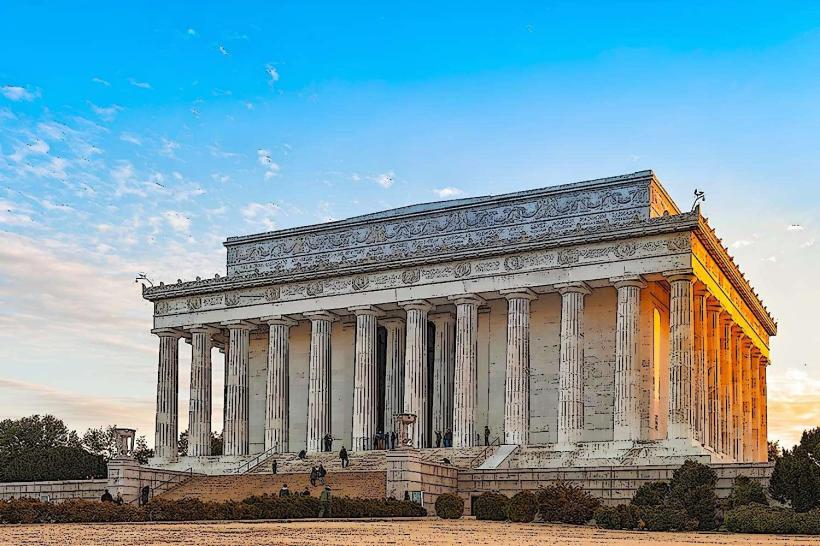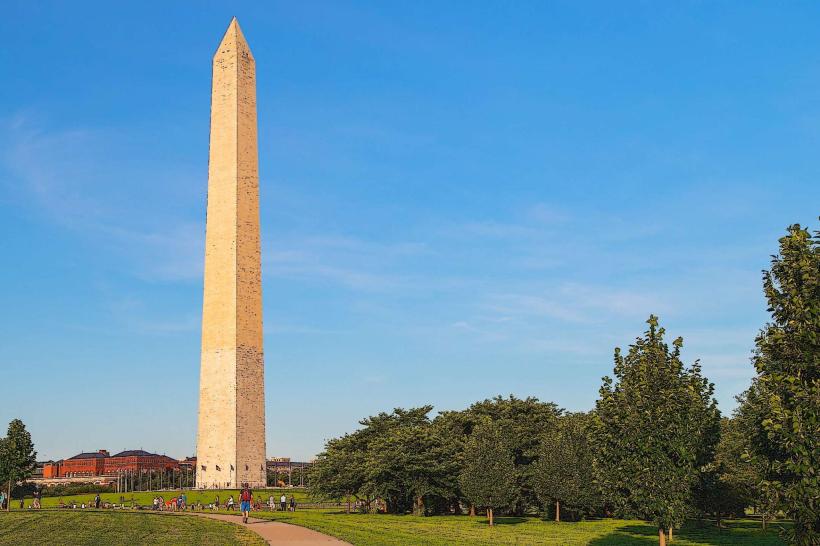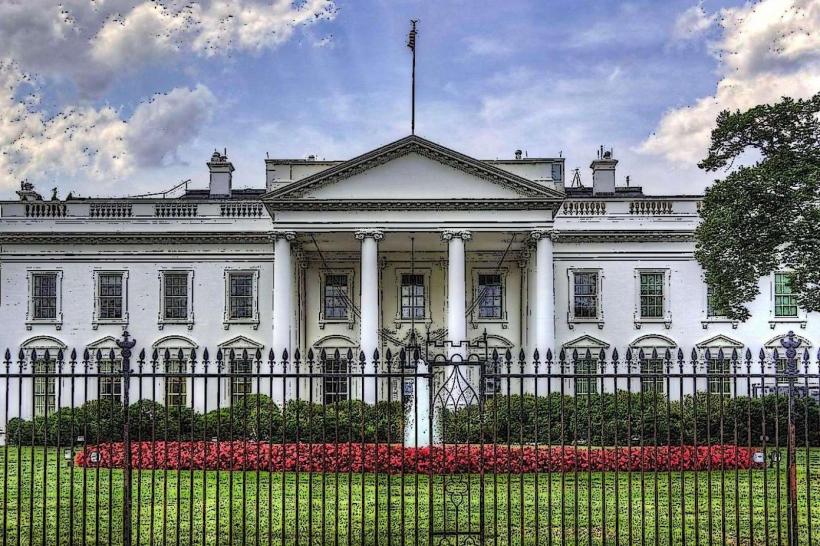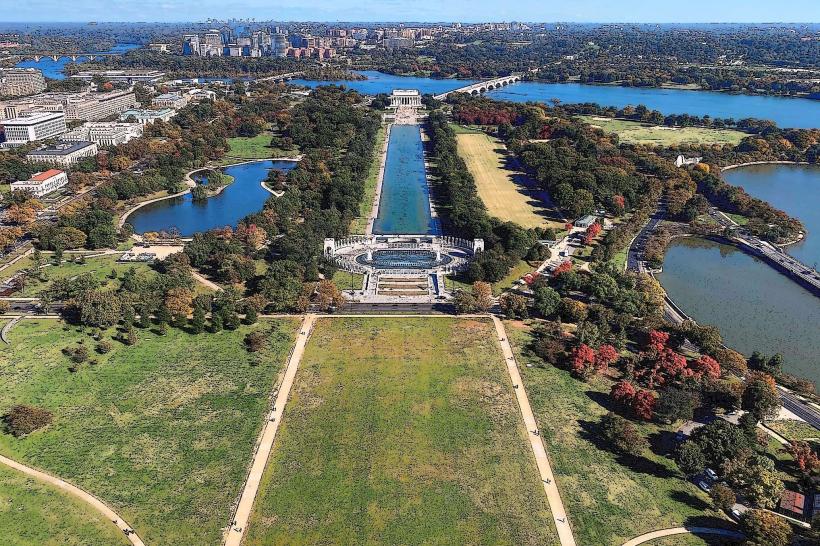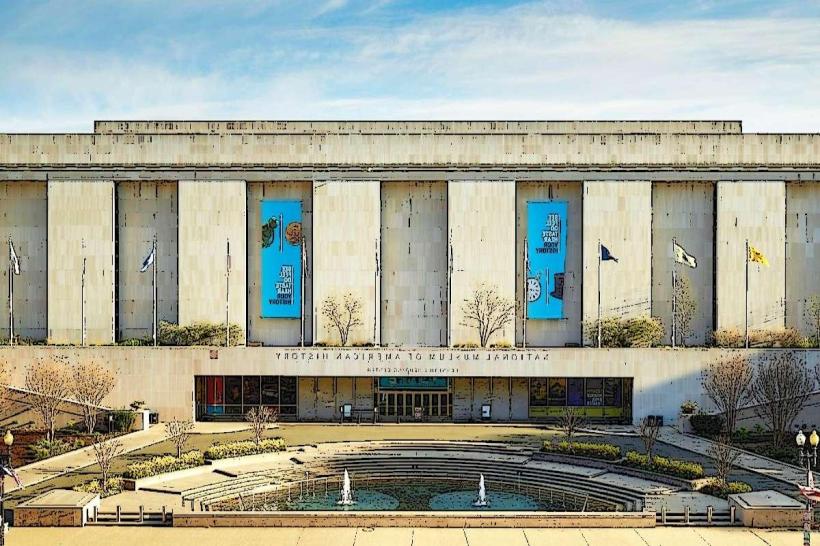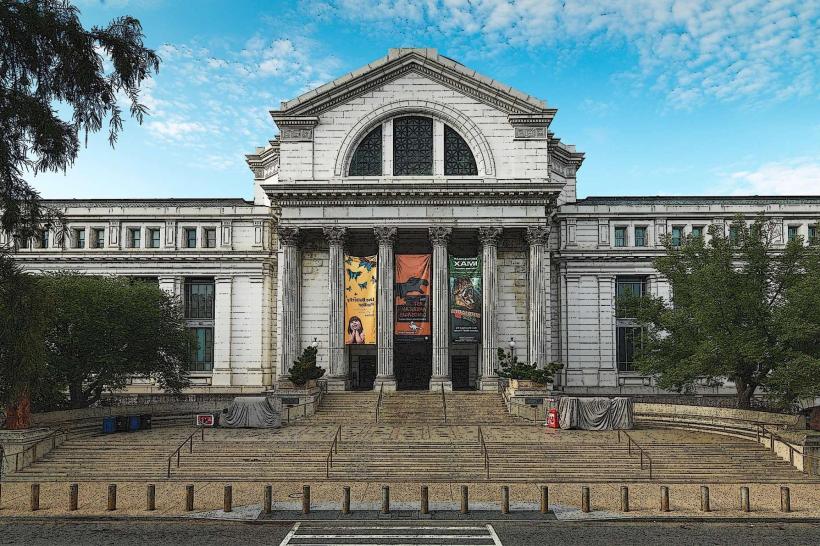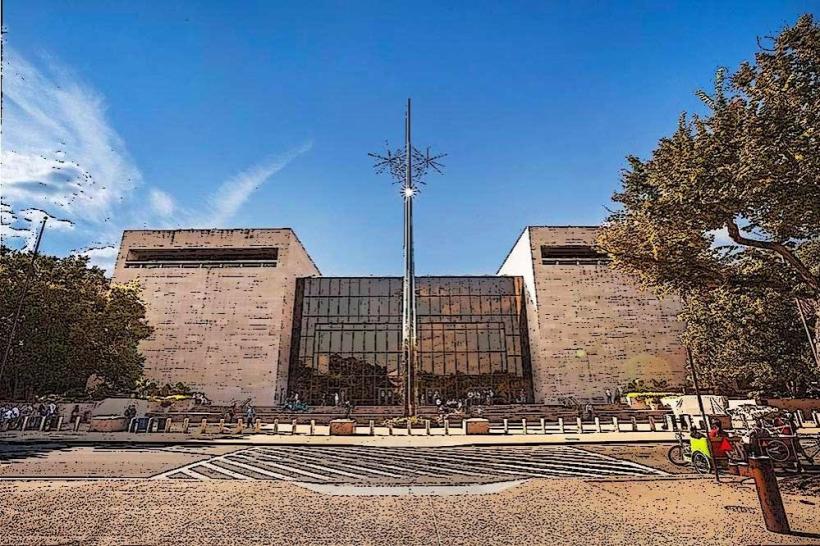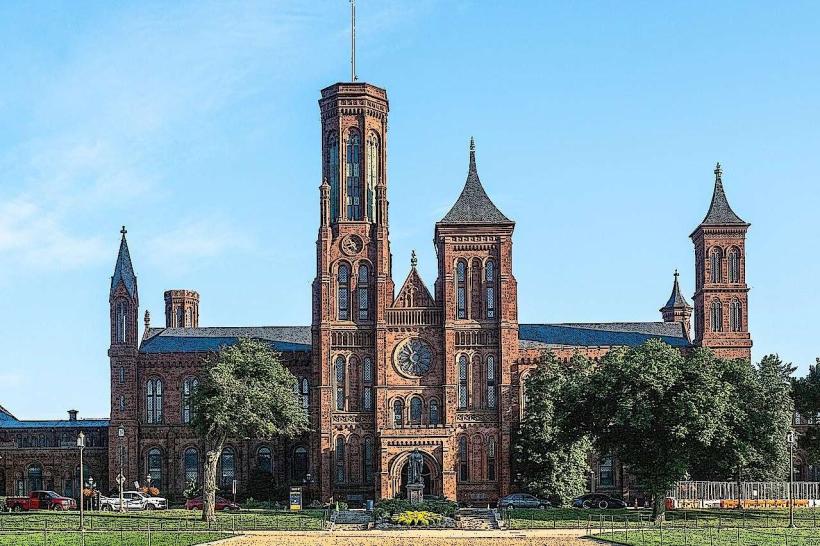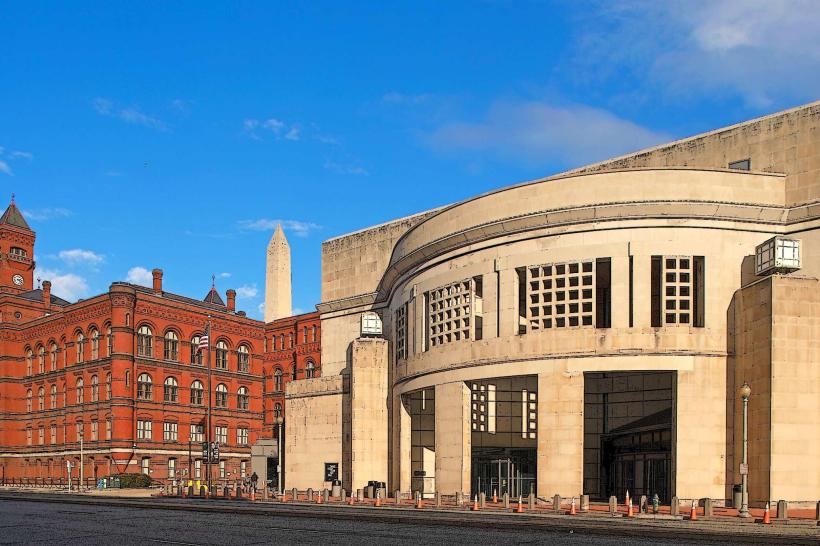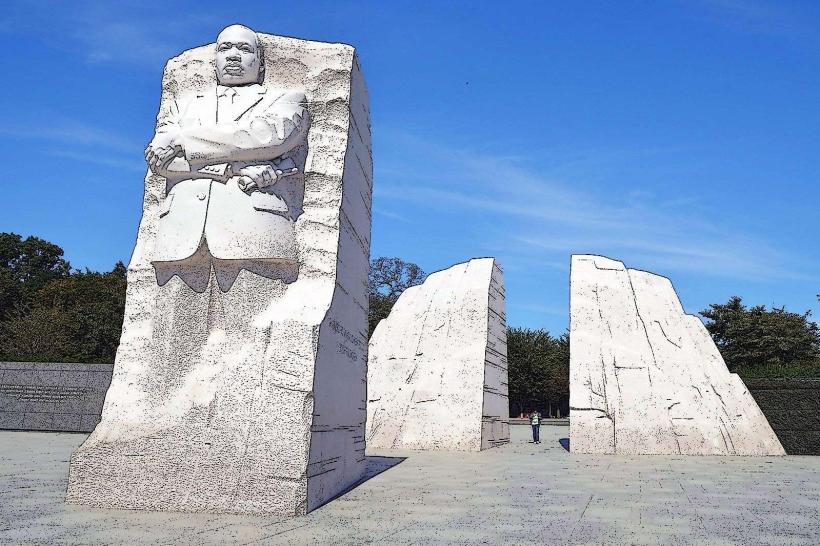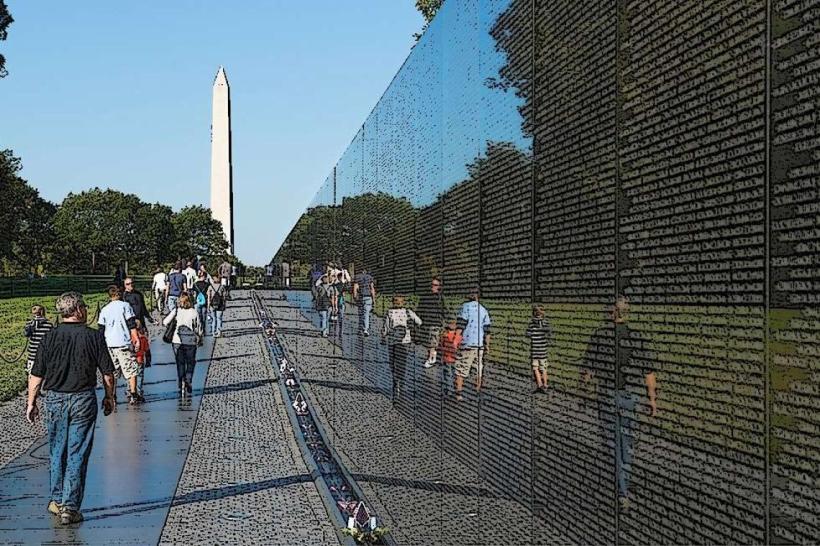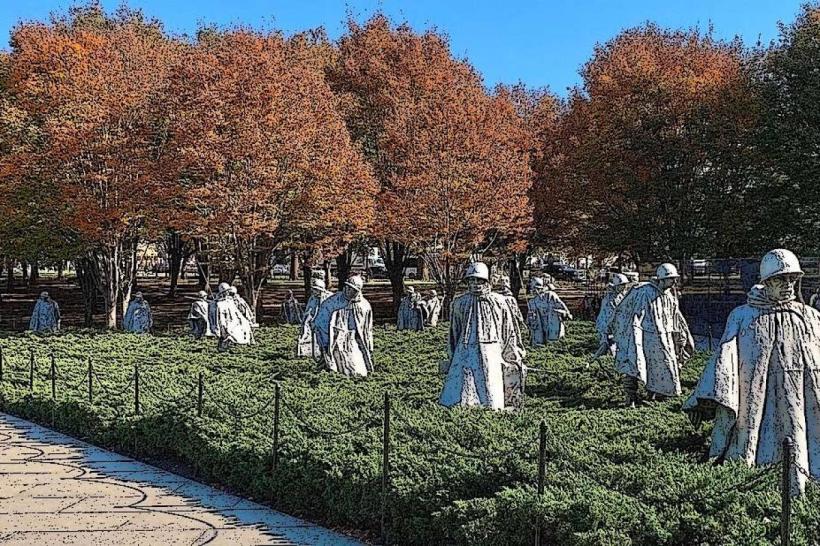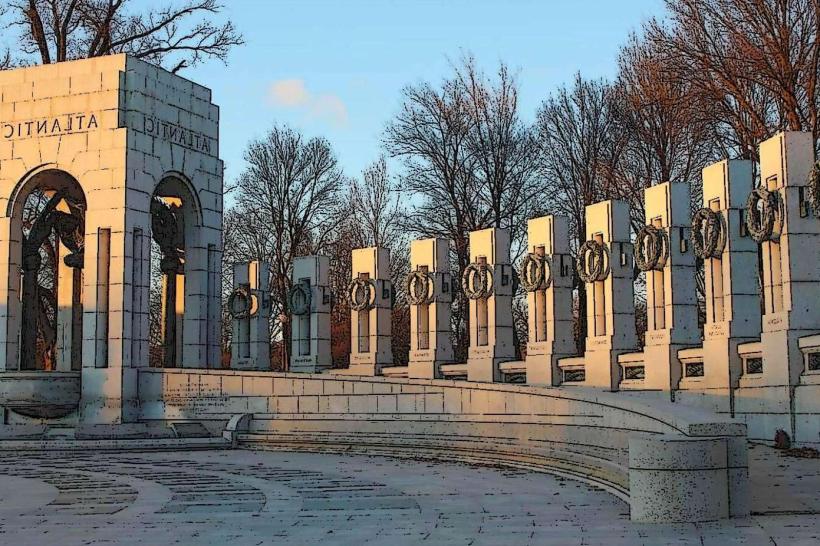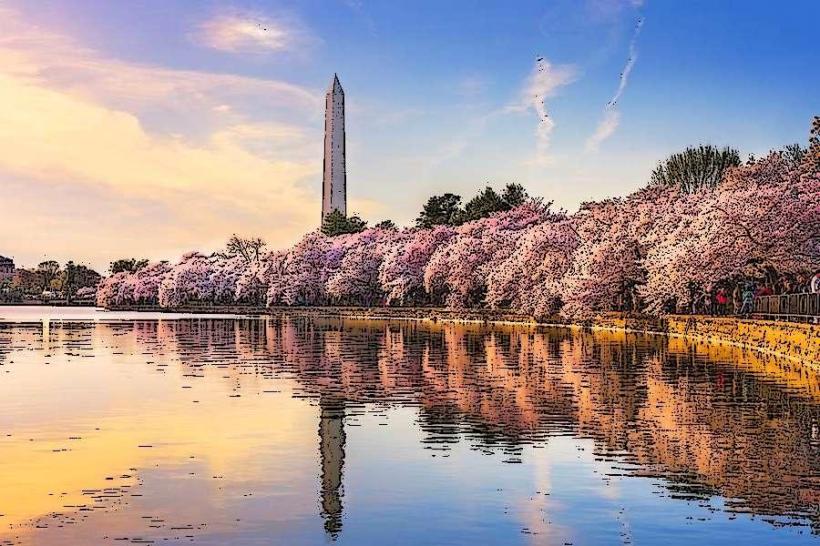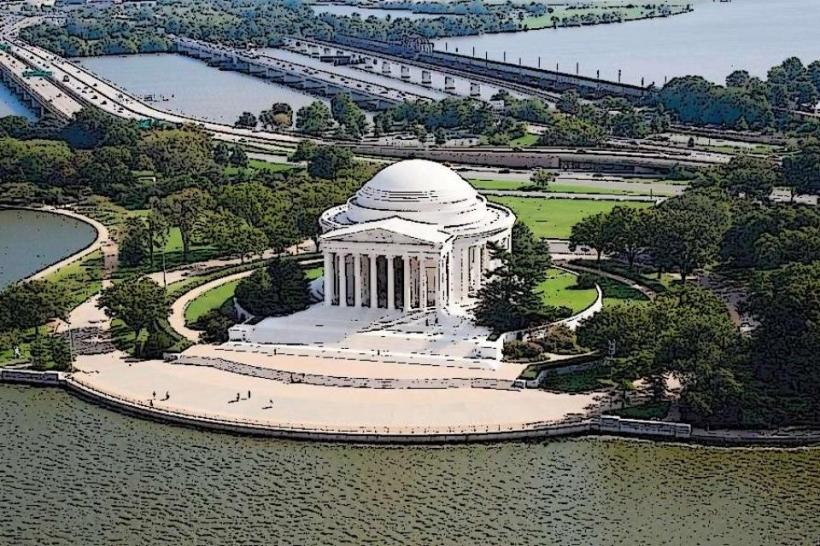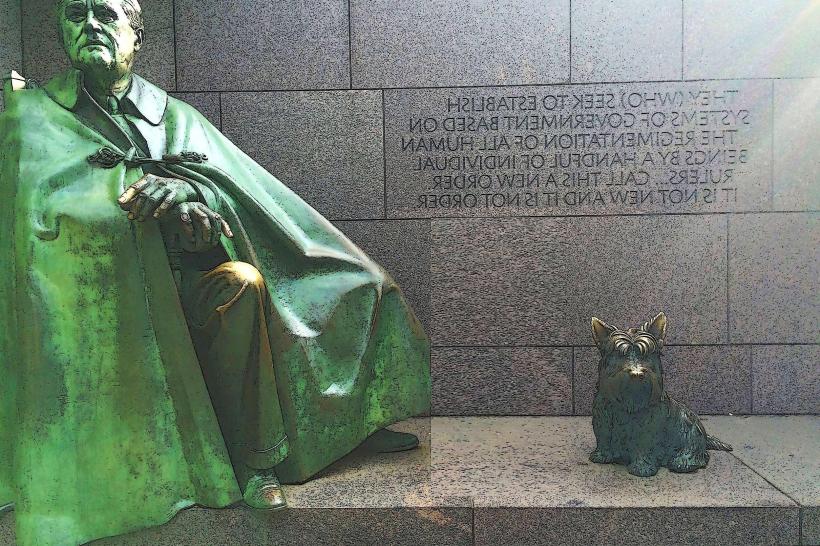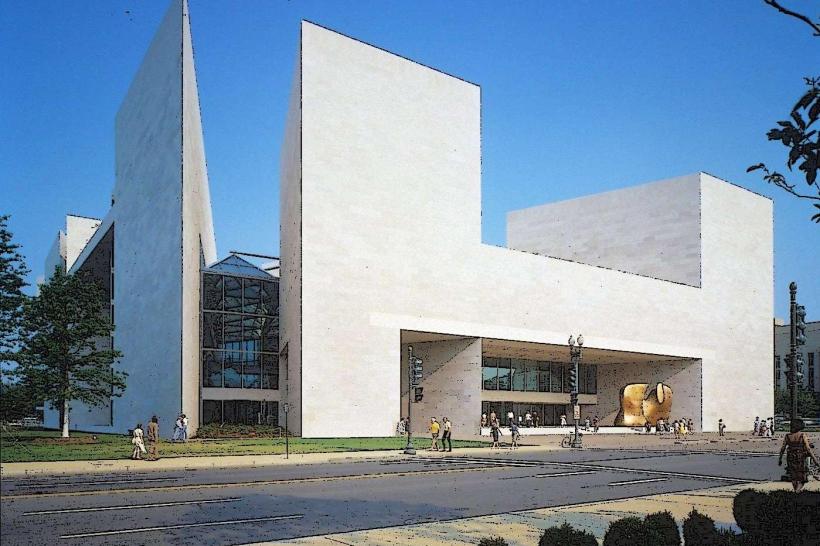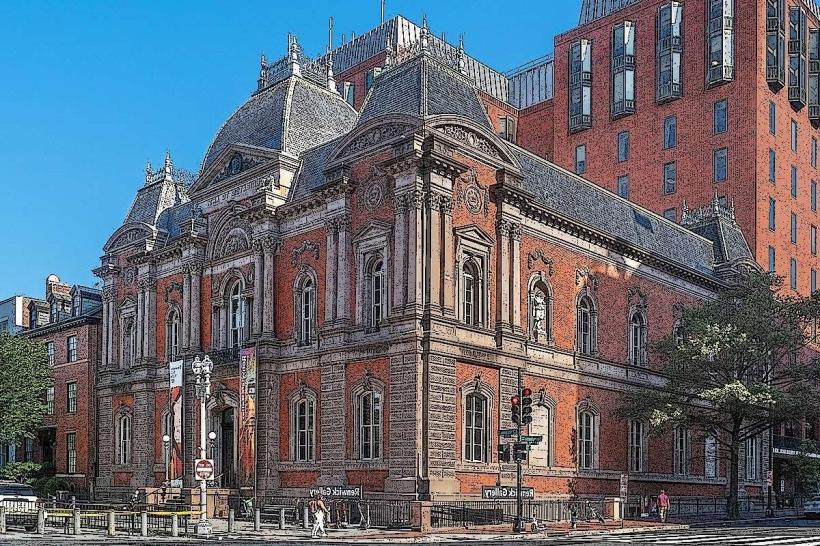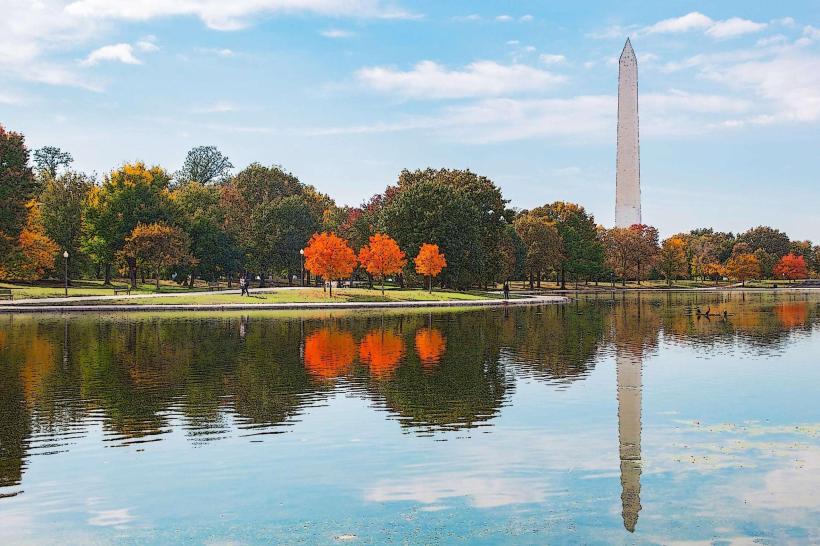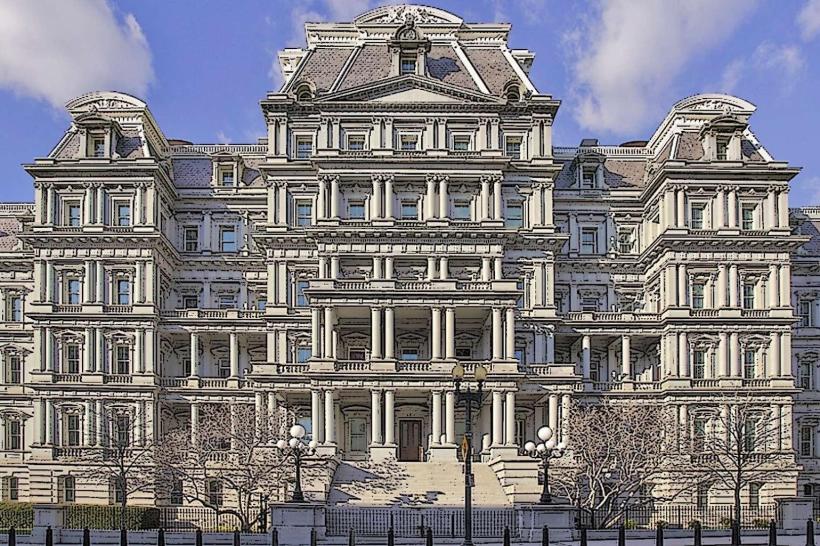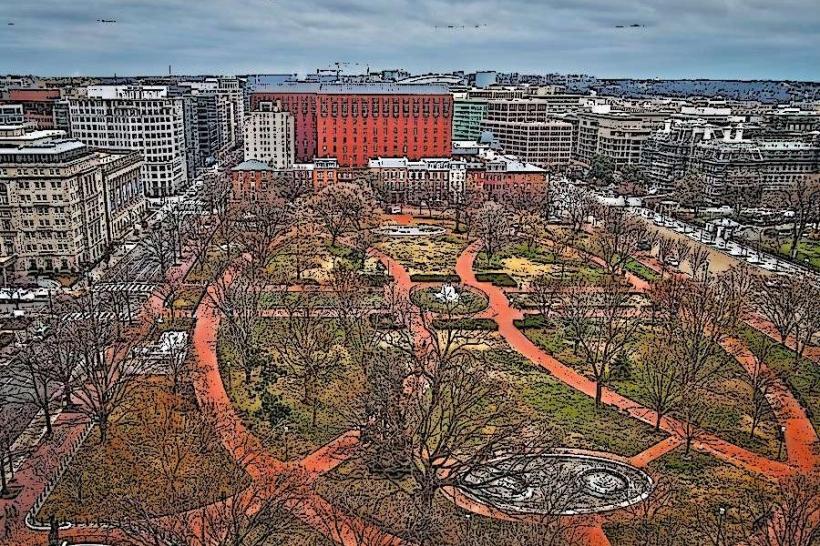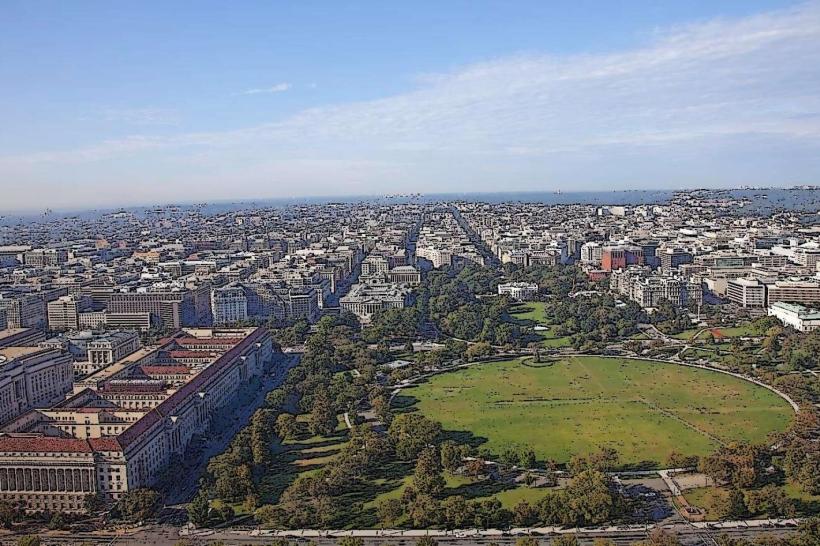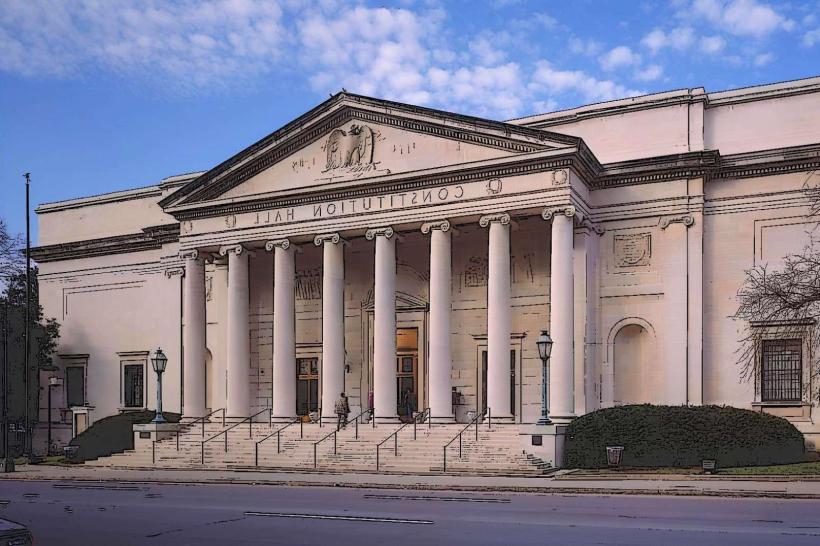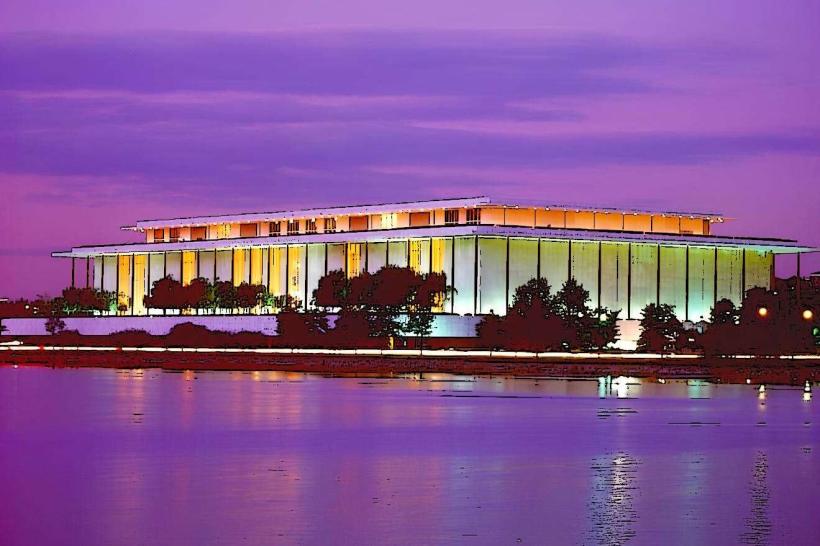Information
Landmark: CityCenterDCCity: Northwest Washington
Country: USA Washington DC
Continent: North America
CityCenterDC, Northwest Washington, USA Washington DC, North America
CityCenterDC is a premier, large-scale mixed-use urban development located in the heart of downtown Washington, D.C. Spanning approximately 10 acres between New York Avenue NW, 9th Street NW, H Street NW, and 11th Street NW, CityCenterDC represents a transformative project that revitalized the site of the former Washington Convention Center into a modern, vibrant urban neighborhood designed to integrate luxury living, high-end retail, office spaces, hospitality, and public gathering spaces within a pedestrian-friendly environment.
Historical and Urban Context
CityCenterDC occupies a key central location in downtown D.C., close to major landmarks like the National Mall, the White House, and the U.S. Capitol. The site was originally home to the old Washington Convention Center, which was demolished to make way for this ambitious urban renewal project. The development’s master plan carefully reintroduced the original L’Enfant Plan’s historic street grid, reinstating a more human-scaled, walkable urban fabric that reconnects this part of the city with surrounding neighborhoods and cultural destinations.
This project is widely regarded as one of the largest and most ambitious mixed-use urban developments on the East Coast, signaling a major shift in downtown D.C.’s urban landscape by combining residential, commercial, cultural, and public spaces into one cohesive district.
Architectural Design and Master Planning
CityCenterDC’s design is a collaboration among internationally renowned architecture and landscape firms. Foster + Partners led the master plan and primary architectural design, creating an ensemble of mid-rise buildings that balance contemporary aesthetics with respect for the historic character of Washington, D.C.
The development features a combination of high-quality materials like glass, stone, and metal, giving it a sleek, modern appearance while maintaining a timeless urban elegance. The buildings are arranged around interconnected streets, plazas, and pedestrian alleys that encourage social interaction and easy movement.
Herzog & de Meuron designed the Conrad Washington, D.C. hotel, a standout component of CityCenterDC’s second phase, adding to the architectural diversity of the project. Gustafson Guthrie Nichol contributed to the landscape architecture, creating green spaces, terraces, and public art installations that enhance the environment and provide open-air gathering spots.
Components of CityCenterDC
Retail
CityCenterDC offers over 200,000 square feet of retail space, making it a premier shopping destination in Washington, D.C. The retail mix focuses heavily on luxury and high-end brands, many of which are unique to the area or represent flagship locations. Key retailers include internationally renowned names such as:
Louis Vuitton
Gucci
Dior
Chanel
Hermès (the only location in the D.C. metropolitan area)
Tiffany & Co.
Bulgari
David Yurman
The retail experience is designed to be intimate and pedestrian-oriented, with storefronts lining tree-shaded streets and the signature Palmer Alley-a lively pedestrian passage famous for seasonal art installations, pop-up shops, and public events.
Dining and Entertainment
The culinary scene at CityCenterDC is diverse and upscale, offering a range of dining options from casual to fine dining. Notable restaurants include:
Centrolina, known for its modern Italian cuisine by Chef Amy Brandwein
Fig & Olive, offering Mediterranean-inspired fare
Del Frisco’s Double Eagle Steakhouse, a premium steakhouse chain
Estuary, located at the nearby waterfront, known for sustainable seafood (part of the extended dining options)
Several cafes and casual eateries such as Dolcezza Gelato & Coffee and Fruitive, serving healthy and artisanal options
The development also hosts regular cultural and culinary events, contributing to a lively neighborhood atmosphere.
Residential
CityCenterDC includes both rental and condominium residences, offering a mix of contemporary apartments and condos designed for urban living:
Approximately 458 rental apartments, including one-, two-, and three-bedroom units, equipped with modern amenities and luxury finishes
Around 216 condominium units distributed across two 11-story residential buildings, offering premium urban housing with access to CityCenterDC’s amenities and retail environment
These residential options attract a mix of young professionals, empty nesters, and urban dwellers seeking a vibrant downtown lifestyle.
Office Space
The development contains about 522,000 square feet of Class A office space within two 11-story buildings. These office spaces cater to professional firms and corporate tenants looking for a prestigious downtown location with modern infrastructure, access to amenities, and proximity to government institutions and major business hubs.
Hotel
The Conrad Washington, D.C. hotel is a 360-room luxury hotel that opened as part of CityCenterDC’s second phase in 2019. Designed by Herzog & de Meuron, the hotel features:
Sophisticated guest rooms and suites with modern design
A rooftop restaurant and bar offering panoramic city views
Banquet and meeting facilities catering to both business travelers and events
Approximately 30,680 square feet of street-level retail space integrated into the hotel complex
Managed by Hilton Worldwide, the Conrad adds an important hospitality component that supports the area’s business and tourism activity.
Public Spaces and Sustainability
CityCenterDC emphasizes green design and public realm enhancements. It achieved LEED Neighborhood Development Gold Certification, reflecting its commitment to sustainability. Key sustainable features include:
Green roofs and landscaped terraces integrated into building design
Environmentally friendly building materials and energy-efficient systems
Pedestrian-friendly streetscapes with ample lighting, seating, and shade trees
Public art installations and open plazas designed to foster community interaction and cultural engagement
The urban design prioritizes walkability, with wide sidewalks, bike racks, and easy access to public transit, reducing reliance on cars and promoting healthier lifestyles.
Location and Accessibility
CityCenterDC’s central location offers outstanding connectivity:
Within walking distance of Metro Center and Gallery Place-Chinatown Metro stations, served by multiple lines (Red, Green, Yellow, and Silver)
Close proximity to the National Mall, the Smithsonian museums, the White House, and other iconic landmarks
Adjacent to the Walter E. Washington Convention Center, linking it to major conference and event activity
Served by several bus routes and designed with pedestrian and cyclist access in mind
Economic and Cultural Impact
Since its opening, CityCenterDC has become a vibrant urban destination that significantly contributes to downtown Washington’s economic vitality. It attracts residents, workers, tourists, and shoppers, serving as a hub for commerce, culture, and community.
The project is credited with:
Revitalizing a formerly underused area in downtown D.C.
Raising the city’s profile as a luxury retail destination
Creating new jobs in retail, hospitality, and office sectors
Providing high-quality urban living options
Enhancing the pedestrian experience and reconnecting the urban fabric
Seasonal events, art exhibitions, and culinary festivals hosted in CityCenterDC further enhance its role as a cultural magnet within the city.
Summary
CityCenterDC stands as a model of thoughtful urban redevelopment, combining historic urban principles with cutting-edge design and sustainable practices. Its mix of luxury retail, upscale dining, quality housing, modern office space, and elegant hospitality set within inviting public spaces makes it a key destination in Washington, D.C. The development exemplifies how cities can successfully blend commerce, culture, and community to create a thriving, pedestrian-oriented urban environment in the nation’s capital.

